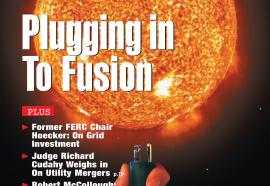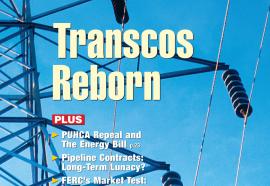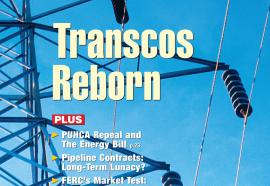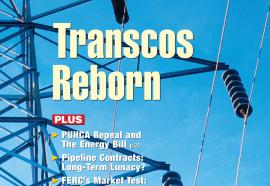The U.S. EPA says that a typical sport fisherman working the Great Lakes would pay $4.58 for the privilege of catching a single walleye/pike, but would gladly fork over $7.99 to land a trout, or as much as $11.19 for a salmon. Sound fishy? Yet the EPA would rely heavily on these data, and other figures quite similar, to justify its proposed “Phase III” rule to regulate cooling water intake structures at small power plants and other similarly sized facilities, to preserve aquatic and marine life in the nation’s lakes, rivers, streams, bays, and estuaries.










